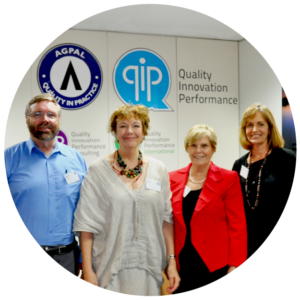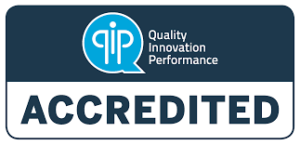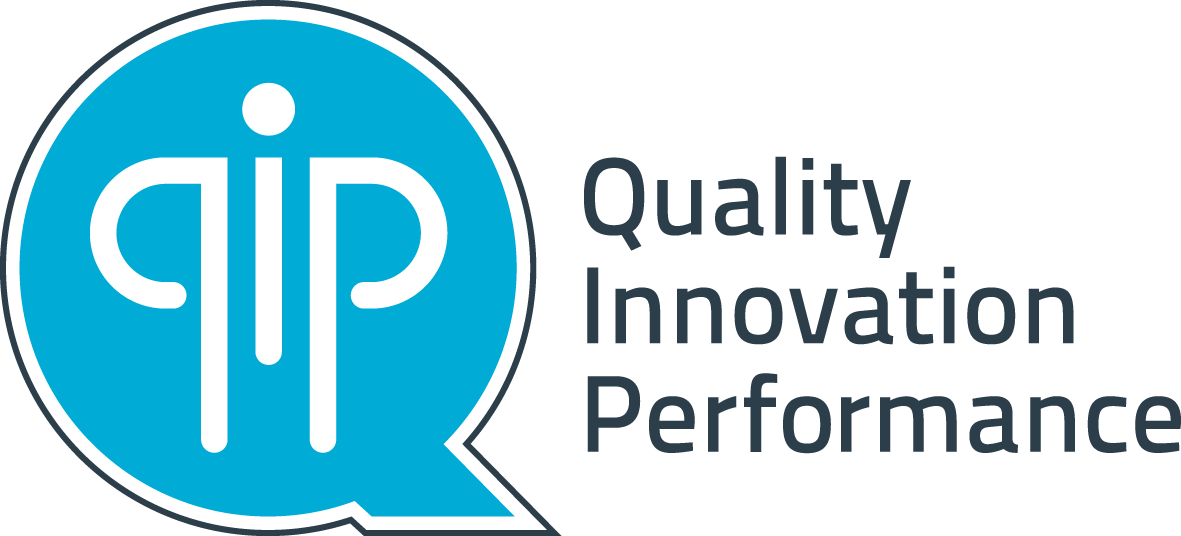National Safety and Quality Digital Mental Health (NSQDMH) Standards
The Australian Commission on Safety and Quality in Health Care (the Commission) launched the National Safety and Quality Digital Mental Health (NSQDMH) Standards in November 2020.
Digital mental health services offer new and innovative ways to access care and have been on the rise over the past decade. The development of the NSQDMH Standards is a significant first step in providing safety and quality assurance for service users and their support people, along with best-practice guidance for service providers and developers.
As Australia’s most comprehensive not-for-profit accreditation, certification and verification organisation, QIP is proud to be approved by the Commission as an accrediting agency for the NSQDMH Standards.
NSQDMH Standards Accreditation
The Commission has developed an accreditation model for digital mental health services, which operates under the Australian Health Service and Quality Accreditation (AHSSQA) Scheme.
The NSQDMH Standards model is based on consultation with key stakeholders and findings from pilot assessments. Evaluation under the scheme officially commenced on 1 November 2022.
The NSQDMH Standards aim to improve the quality of digital mental health service provision and to protect service users and their support people from harm. There are three NSQDMH Standards which include 59 actions related to clinical and technical aspects of digital mental health services. The three NSQDMH Standards are outlined below:
1. Clinical and Technical Governance Standard
Assess whether a service provider has the appropriate systems to maintain and improve the reliability, safety, and quality of care. Notably, this includes the privacy, security and stability around data collection and storage.
2. Partnering with Consumers Standard
Works to ensure that service users and, when applicable, their support people are included in shared decision-making, partners in their care, and actively consulted in developing and designing quality mental health care.
3. Model of Care Standard
Determines whether a service provider has the systems in place to ensure that the service is based on the best available evidence and best practice. Additionally, it aims to ensure that service users, consumers and support people are provided with information about the services. Lastly, it confirms service providers have systems for minimising harm to service users and others, effective communication to support coordinated and safe care, and recognising and responding to acute deterioration in a person’s mental state.
It’s important to note that the Standards are to be applied to the individual digital mental health program, rather than the organisation as a whole. Not all actions within each standard will apply to every digital mental health service. A service provider may offer more than one digital mental health service and may see the application of the NSQDMH Standards differ across those services. This ensures that the issues specific to digital mental health services are appropriately focused on. The applicability of actions and the extent of the strategies required will be determined by the size, risk to service users and their support people, and the complexity of the service provider’s digital mental health services.
NSQDMH Standards Eligibility
The NSQDMH Standards are voluntary and apply to non-government, public or private organisations or individuals who make a digital mental health service available for others to use.
In relation to the NSQDMH Standards, a digital mental health service is defined as ‘a mental health, suicide prevention or alcohol and other drug service that uses technology to facilitate engagement and deliver care’.
Digital mental health services include:
- Services that provide information
- Digital counselling services
- Treatment services (including assessment, triage and referral services)
- Peer-to-peer support services
Digital mental health services may be delivered by:
- Telephone (including mobile phone)
- Videoconferences
- Online services (such as web chats)
- SMS
- Mobile health applications (apps)
Digital mental health services can be standalone supports that are self-managed or therapist-guided, or they can complement in-person services.
By implementing the NSQDMH Standards, service providers demonstrate they are committed to excellence in safety and quality and to achieving the best outcomes for service users and their support people.
How QIP supports organisations
Tailored support
QIP has trained QIP Client Liaison Teams on hand to answer any questions clients may have about their accreditation, certification or verification. With expert knowledge of each of the standards or frameworks, evidence requirements and the self-assessment process, QIP’s Client Liaison Teams provide clients with on-going advice throughout their cycle.

QIP’s accreditation hub
The QIP accreditation hub is an online platform tailored to each client’s individual accreditation timelines and framework requirements. It includes a personalised action plan, a resource library and a number of other features to support clients throughout their accreditation journey.
Access to AccreditationPro
QIP’s online self-assessment software, known as AccreditationPro, streamlines accreditation preparation by helping clients determine their organisation’s compliance with an applicable set of Standards.

Access to online resources and education
QIP’s online Education and Resource Library, provides clients with access to a range of practical, informative and customisable resources to support organisations in complying with the relevant industry Standards.
Regular news and e-newsletters
Stay up-to-date with industry and organisational news, helpful tips and your standards information with QIP communications including periodical e-newsletters advising of any changes to processes, systems, standards or evidence requirements are released.
Highly trained assessment teams
QIP’s Assessors are highly trained and qualified peer assessors who work across the Australian health, community and human services sectors. Our team will share their knowledge and support organisations through the accreditation assessment.

Celebrating the achievement of accreditation
Achieving QIP accreditation takes dedication, team work and a commitment to continuous quality improvement. When organisations achieve their accredited, certificated or verified status, they are provided with their own 'Promotional Toolkit' filled with a number of materials to celebrate and promote this achievement.
The QIP Accredited Symbol is one way consumers and local community can be reassured that an organisation has been recognised for their commitment to delivering a safe and quality-focused service.


